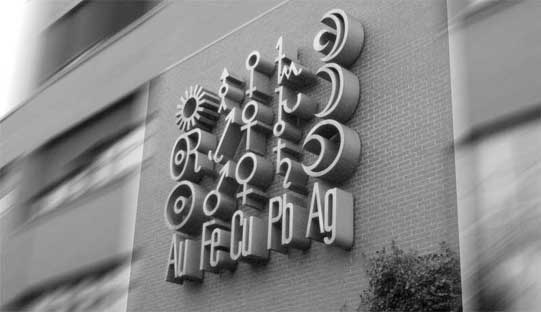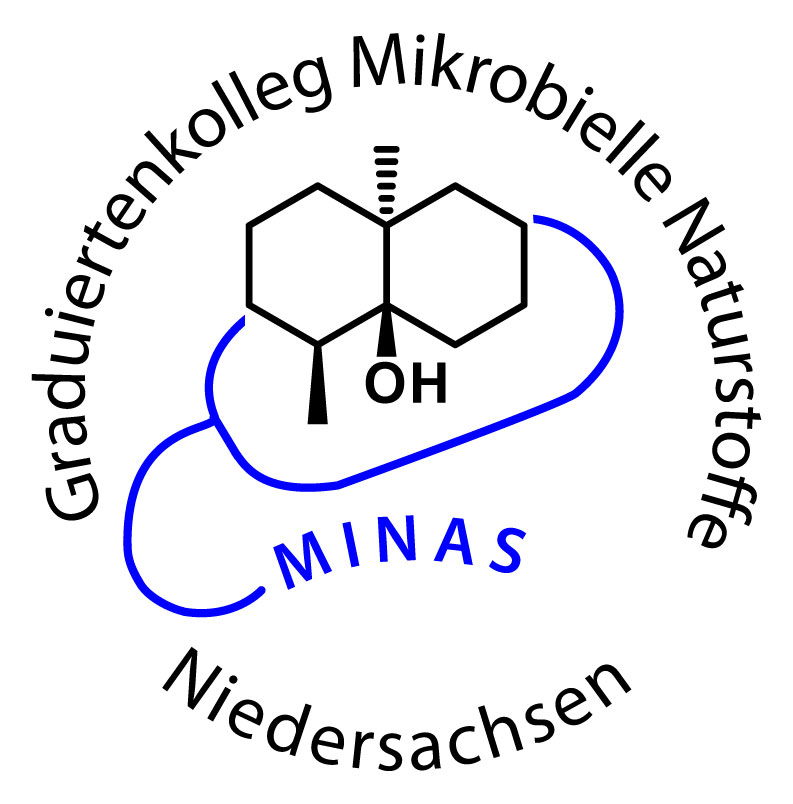|
Project area B: Biosynthesis, isolation, and production
Project B1: Systems Metabolic Engineering of Escherichia coli for
the Biosynthesis of Natural Products
Prof. Dieter Jahn, Institute of Microbiology, TU
Braunschweig
Web address: https://www.tu-braunschweig.de/ifm/abt/jahn
Prof. Rainer Krull, Institute of Biochemical Engineering, TU
Braunschweig
Web address: http://www.ibvt.de/EN/Team/Management/Krull.php
The project aims at rational design and engineering of E. coli
strains into recombinant tailor-made cell factories for natural
products derived from tryoptphane. Exemplified for violacein,
deoxyviolacein and rebeccamycin it will integrate cultivation and
bioanalytics with novel concepts from systems and synthetic biology.
Currently, these valuable compounds are difficult to provide due to
low product levels, weak growth and inaccessible genetics of their
natural producers, suggesting well-known E. coli as most promising
candidate for production.
Required qualification: Master in Biotechnology, Chemistry, Biology,
Molecular Biology or similar
Project B2: Isolation and Characterization of Antimicrobial
Compounds Produced by Paenibacillus larvae
Prof. Michael Steinert, TU Braunschweig, Institut für Mikrobiologie
Web address:
http://www.tu-braunschweig.de/ifm
The Gram-positive, spore-forming bacterium Paenibacillus larvae is
the causative agent of American Foulbrood (AFB), a fatal disease of
honeybee larvae. Through the production of antimicrobial compounds
P. larvae out competes the larval microflora and can be isolated as
pure culture from infected dead larvae. Extracted compounds from P.
larvae culture medium exhibit strong antagonistic activities against
numerous tested Gram-positive and Gram-negative bacteria and are the
starting material for further purification, identification and
characterization. The final aims of the project are to develop
potential therapeutic lead structures against antibiotic-resistant
bacteria und to better understand the pathogenicity of the most
deleterious bacterial disease of honeybees.
Required qualification: Master in Biology, Biochemistry or Chemistry
Project B3: Biosynthesis, production and mode of action of
unusual fatty acid derived antibiotics form myxobacteria
Prof. Rolf Müller, HZI Braunschweig, Mikrobielle Wirkstoffe
Web address:
http://www.helmholtz-hzi.de/de/forschung/forschungsschwerpunkte/neue_wirkstoffe/mikrobielle_naturstoffe/unsere_forschung/
Unusual fatty acid derivatives are novel antibiotics from
myxobacteria exhibiting a pharmaceutically promising spectrum of
activity against gram-negative bacteria. In this project we aim to
identify the biosynthetic gene cluster, improve production and
elucidate the mode of action of these compounds. Once the
biosynthesis is understood, heterologous expression and biosynthetic
engineering will be used to generate modified compounds to improve
pharmaceutical properties and activity. Derivatives will be used for
activity assays and possibly also medicinal chemistry approaches in
collaboration with the Schulz group.
Required qualification: Master in
Chemistry, Biology, Biotechnology or Pharmacy
Project B4: Using Bacterial Biosynthetic Machineries for the
Production of Functional Molecules
Dr. Jeroen Dickschat, TU Braunschweig, Institut für Organische
Chemie
Web address:
http://www.oc.tu-bs.de/dickschat/startseite_de.html
Terpenes, polyketides, and non-ribosomal peptides make up important
classes of natural products with interesting bioactivities including
antibiotic or cytotoxic properties. In some cases the biosynthetic
pathways to such molecules show a high flexibility, thus allowing
for the successful feeding of alternative building blocks such as
fluorinated compounds to bacterial cultures. Alternatively, building
blocks with a photoactivatable functional group can be fed. The
efficiency of incorporation can significantly be increased by
genetic engineering of the respective biosynthetic pathway. In an
alternative approach key enzymes that are involved in the
biosynthesis of a complex natural product may be heterologously
expressed and purified. The enzyme can then be used for the in vitro
conversion of fluorinated or photoactivatable precursors. The
applicant will be involved in compound feeding, purification and
structure elucidation of the obtained "non-natural" natural products,
testing of their (antibiotic) properties, and genetic pathway
engineering. The fluorinated and photoactivatable precursors will be
synthesized and provided by in-house collaboration partners (A6 -
Prof. Lindel, A1 - Prof. Schulz).
Required qualification: Master in Chemistry, Biotechnology, Biology
or similar
Project B5: Enzymology of isolated functional domains from iterative Fungal Polyketide Synthases
Professor Russell Cox, Leibniz University Hannover, Institute of Organic Chemistry Dr. Frank Hahn, Leibniz University Hannover, Institute of Organic Chemistry
Web address:
http://www.bristol.ac.uk/chemistry/people/russell-j-cox/overview.html
Fungal polyketide synthases (PKS) are remarkable enzymes which iteratively use a small number of carbon-carbon
bond-forming and modifying enzyme domains to create complex, often biologically active, small molecules.
Fungal PKS are programmed so that in each round of extension and modification the growing chain can undergo different chemistry.
In order to understand the root of this cryptic programming this project will investigate the
selectivities of individual isolated enzyme domains using synthetic substrates.
The project will involve the use of molecular biology and protein expression to obtain the functional fragments of a fungal PKS,
synthetic chemistry to make substrates in enantiomerically pure (and often isotopically labelled)
forms and detailed analytical chemistry and enzymology. Interested candidates should have experience in
synthetic chemistry and natural products chemistry.
Required qualification: Master in Chemistry
|





